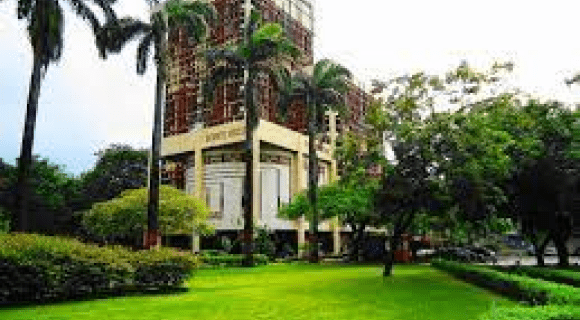A visiting Professor at the Department of Religious Studies, Osun State University, Muibi Omolayo Opeloye has decried the lack of unity among the Muslim Ummah, and identified it as the major reason for the growing conflicts in Muslim countries across the globe.
He stated this at the 19th Ramadan Lecture of the University of Lagos Muslim Community (UMC) which was held on Saturday, March 16, 2024, at the Islamic Centre Hall, UNILAG Central Mosque, Main Campus, Akoka. The event which had notable dignitaries from the academia, government as well as policy makers was held under the distinguished Chairmanship of Prof. Mukhtar Abayomi Adelaja Arigbabu.

Delivering his paper on Global and Local Conflicts: Islam and Muslims, the Osun-state-born academic gave a comprehensive explanation on Islam, Muslims, and conflicts on the local and global levels.
While highlighting the fundamental principles of Islam which promote peace, justice, and compassion, Professor Opeloye traced the origin of the conflicts and insurgencies associated with Islam and Muslims in the contemporary era to the civil unrest that engulfed the early history of Islam.
Emphasizing that the Qur’an and Hadith (sayings and actions of the Prophet Muhammad) encourage Muslims to live in harmony with others regardless of their faith or background, the guest lecturer acknowledged that various interpretations of the books have led to divergent views and practices, sometimes resulting in conflicts.


The well-travelled Researcher identified issues such as resource scarcity, power struggles, and ideological differences which are political factors that have also contributed to local and global conflicts involving Muslims.




According to him, “the causes of religious violence differ from one environment to another. For instance in Nigeria, certain constant factors breed religious violence with obvious consequences for the safety and security of citizens. Some of these include theological differences, religious intolerance, religious fanaticism, unbridled use of the media, and poverty, among others.”
He explained that the problem of poverty, especially in the urban areas, accounts for the bulk of ethnic and religious violence while socio-economic issues like insufficient physical and social infrastructures, unemployment, and inadequate housing were triggers.
His words: “…poverty creates societal problems, particularly when many people cannot afford their needs like shelter, clothing and feeding. Since Nigeria lacks a structural economy to cater to a large population, the consequent poverty creates societal problems. Extremely poor people can do anything to sustain themselves. Thus, poor youth, such as Almajiris particularly in Northern Nigeria, may be easily manipulated with a small amount of money to cause religious disturbance”.
Professor Opeloye also identified the role of anti-Islam western diplomacy factor in conflicts. According to him, “the role of foreign intervention in exacerbating conflicts in Muslim-majority countries, particularly in the Middle East and North Africa has further marginalised Muslim communities, making them more susceptible to radicalization and violence”.
The professor addressed the rise of Islamophobia and discriminatory policies against Muslims in various parts of the world and argued that these attitudes are often based on misinformation, stereotypes, and prejudice. Despite the problems prevalent in many countries around the world, he stressed that some Muslim countries still enjoy relative peace and stability.
The thorough-bred scholar offered possible solutions to promote peace and understanding between Muslims and non-Muslims. He suggested enhancing interfaith dialogue, promoting accurate representations of Islam in media, and addressing socio-economic disparities that disproportionately affect Muslim communities. He encouraged Muslims to engage in constructive debates about their faith while being open to alternative perspectives.

Earlier in his remarks, the Chairman of the occasion, Professor Mukhtar Arigbabu described the Lecture as timely as the problem of religious disturbances in Nigeria has had devastating effects on the stability of the country.
The Commissioner for Education in Ogun state posited that the destruction that religious violence has caused to Nigeria cannot be quantified.

On her part, the Vice-Chancellor, Professor Folasade T. Ogunsola, OON, FAS, who was represented by Professor Alabi Soneye stressed the value of compassion, generosity, and empathy that the month of Ramadan teaches. She commended the UMC for providing a platform that encourages open discussions and promotes interfaith and intercultural understanding.
Chairperson of the event and a Director at the Lagos State Ministry of Education, Alhaja Fatima Titilayo, in her goodwill message, called for education, advocacy, and community engagement to eradicate conflicts.


In his own goodwill message, former Vice-Chancellor of the University, Professor Rahman Bello, lauded the UMC for its consistency in bringing the Ummah closer to the understanding of the deen.

‘’ As we observe Ramadan, a month of self-reflection and spiritual growth, let us use this opportunity to reflect on our role in promoting peace, justice, and unity. Let us remember the teachings of Islam that emphasise compassion, tolerance, and respect for all humanity”, he said.

Earlier in his welcome address, the Chairman of the UMC, Professor Hakeem Olaniyan, had underscored the importance of the lecture. The Professor of International Law and Jurisprudence encouraged the audience to embrace the spirit of Ramadan, strive for positive change, and work together to build a world where Islam and Muslims are truly understood and appreciated.








Report: Bayo Salau
Photographs: Ayo Oloyede


